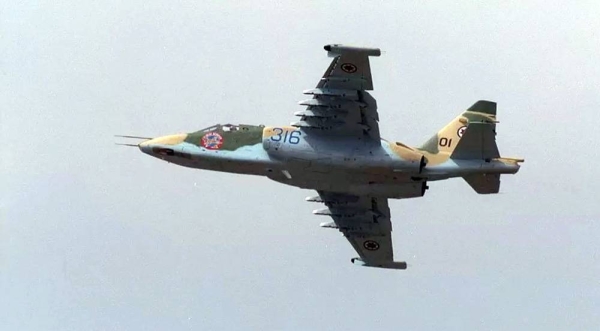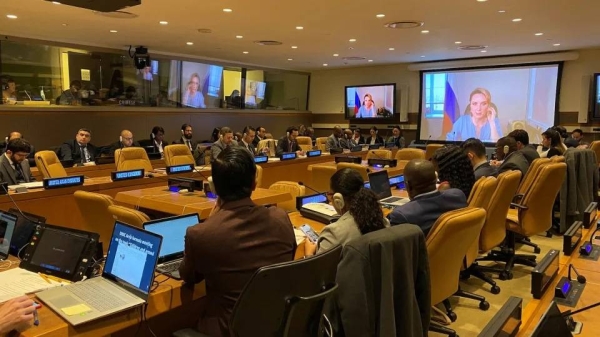
The senior Conservative MP Tobias Ellwood has accused the defence secretary, Ben Wallace, of concealing a potential Russian “act of war” against an RAF spy plane, during an emergency debate in the Commons.
The chair of the defence select committee questioned an account given by Wallace to parliament of the dangerous incident, which occurred last September and was revealed last week in a leak of hundreds of top secret Pentagon documents as a “near-shoot down”.
Ellwood, who had asked the speaker for permission to discuss the security breach, asked whether “too much information” was “now classified as top secret” – meaning the public was sometimes unaware of threats facing the UK.
The MP went on to ask “if a Russian Su-27 [fighter] did deliberately attempt to fire a missile on an RAF Rivet Joint over the Black Sea last September”, referring to a fresh report of the incident that emerged as a result of the leak.
It suggested the mid-air incident was more serious than Wallace portrayed when he briefed MPs about it in October, prompting Ellwood to argue it was “an act of war, the details of which surely should be publicised, not hidden away in intelligence reports”.
US defence sources told the New York Times that the Russian pilot had locked on to the British aircraft and, believing they had permission to fire, shot a missile. However, the missile malfunctioned. The specialised RAF aircraft can carry up to 30 crew members.
At the time the defence secretary told the Commons that a Russian fighter jet had “released a missile in the vicinity” of the Rivet Joint surveillance aircraft, and that it was “incredibly lucky” a tense situation had not become worse. But he sought to cool the issue, arguing “we do not consider it to have been a deliberate escalation”.
Wallace was not in the Commons on Tuesday to respond. The defence secretary is on a two-day trip to Washington DC, meeting his US counterpart, Lloyd Austin, and members of Congress, where he would be expected to discuss the fallout from the leaks as well as the state of the war in Ukraine.
The junior defence minister James Heappey, responding for the government, said he could not comment on the content of any of the documents, even though they have been widely circulating in US, UK and international media. “That these apparently leaked documents are in the public domain does not change their classification and thus the degree that any minister or official can comment on their context,” the minister told MPs, declining to reply in detail.
Heappey said “some of these documents have been manipulated” for disinformation purposes, although there is no evidence the spy plane document or many of the others had been altered before being placed online.
One document was digitally altered by a Russian blogger to exaggerate estimates of Ukrainian casualties and reduce the Russian figures, but the forgery was crude and was soon detected when compared with earlier versions leaked online.
John Healey, the shadow defence secretary, asked if Wallace would “make a statement to parliament on his return” to tell MPs what reassurances had been received from the Pentagon “on how British intelligence is handled”. Heappey, however, did not commit to his boss coming back to brief MPs.
Raw intelligence collected by the Five Eyes countries – the US, UK, Canada, Australia and New Zealand – is normally pooled, meaning it is likely some of the top secret files will be based on information collected by the British. Many of the leaked reports are marked “FVEY” – for sharing between the five countries.












